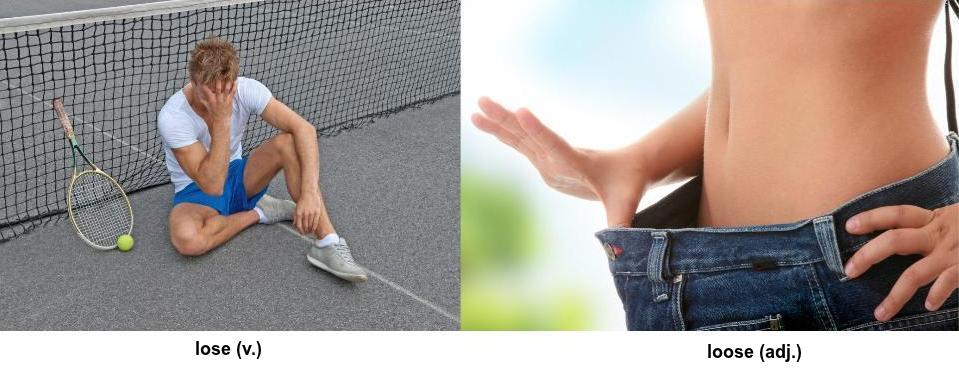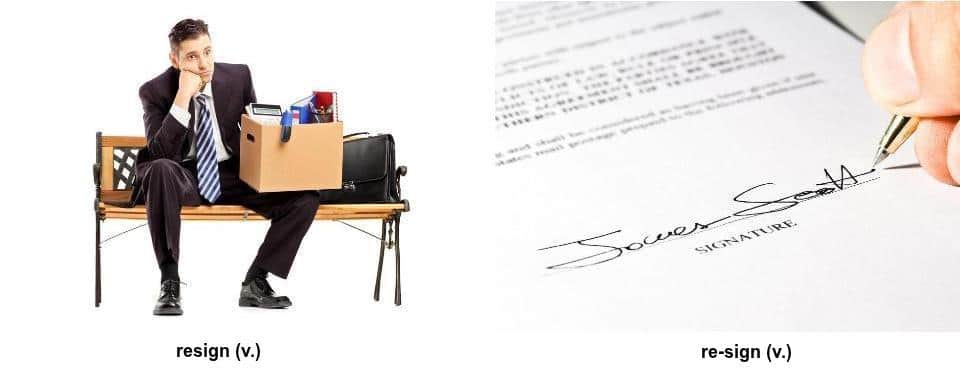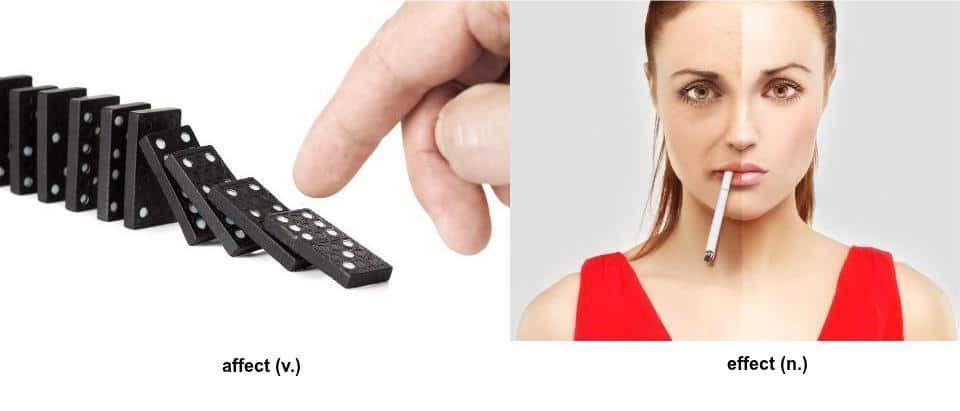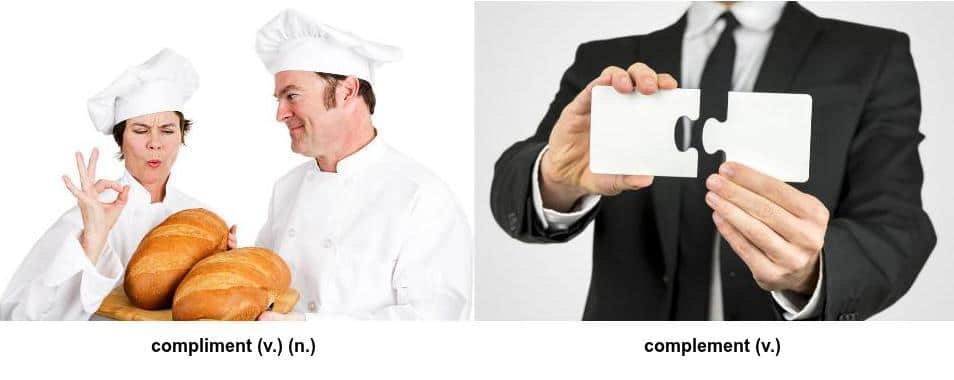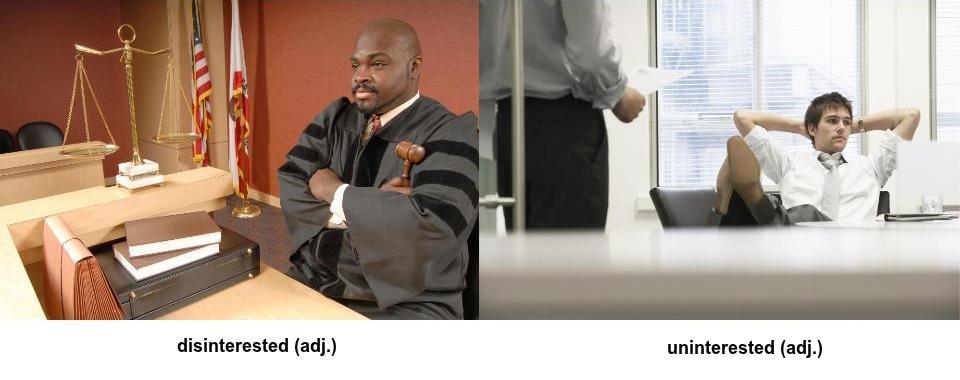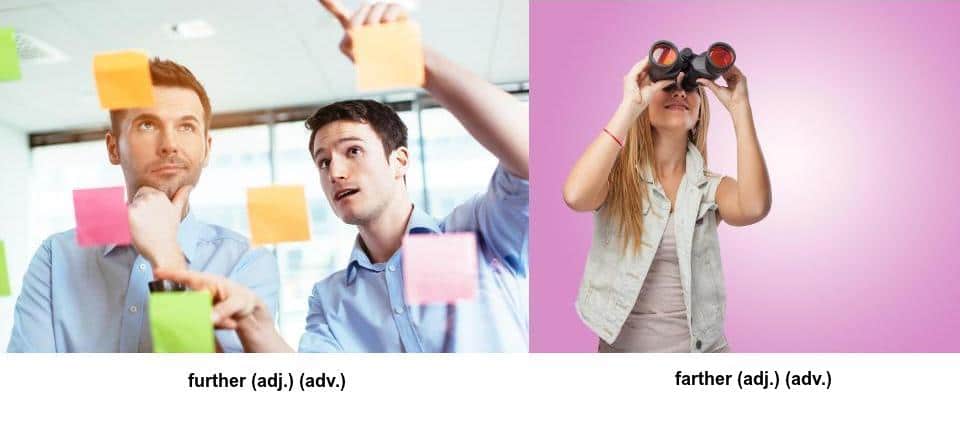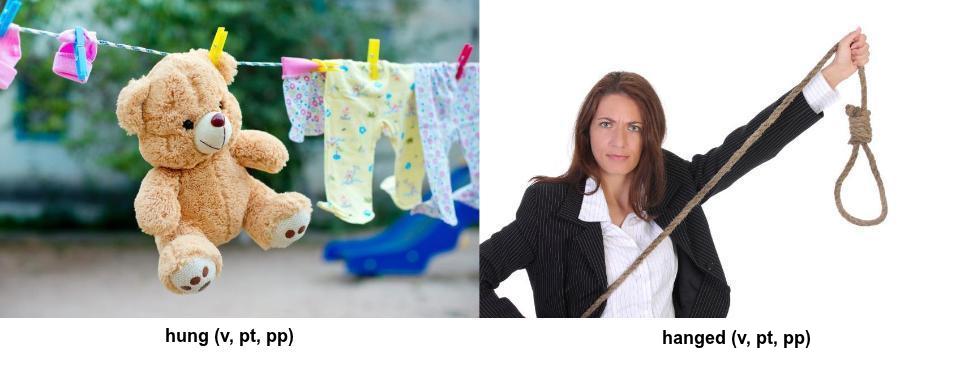-
#1
Hi,
I have two pairs of sentences which use the «far» and ‘far away’.
I can kick the soccer ball far.
I can kick the soccer ball far away.
*I can see the soccer ball far.
I can see the soccer ball far away.
I think «I can see the soccer ball far» is wrong grammatically.
But why is it wrong?
I feel in the first pair, both «far» and ‘far away’ modify the verb ‘kick’.
But in the second pair I feel «far» and ‘far away’ modify the «soccer ball», not the verb «see«.
I think we should say «the far soccer ball», not the ‘the soccer ball far’.
And we can say «the soccer ball far away» or «the far-away soccer ball».
What do you think?
Thanks!
Last edited: Apr 11, 2012
-
#2
Far and far away are not used like that.
‘I can kick the ball a long way.’
‘I can see the ball in the distance.’
‘I can just see the ball in the far distance.’
See also this thread.
Rover
-
#3
I can see the soccer ball far.
I can see the soccer ball far away.
While it might not be formal, I don’t see anything wrong with the second sentence. ‘Far away’ at the end implies it is far away [from the speaker].
You can’t use far at the end of the sentence because far signifies a distance.
«the far soccer ball»
«the soccer ball far»
Far is an adjective, but it describes a great distance in itself, and a soccer ball can’t take on that characteristic. You have to specify far from what.I can see the soccer ball at the far end of the field.
Last edited: Apr 11, 2012
-
#4
Thank you, Rover.
Do you mean «I can kick the soccer ball far / far away» is grammatically incorrect?
-
#5
Thanks, bellatrix27.
Another native speaker told me «I can kick the soccer ball far» is correct. I am confused.
Is this one correct: «How far can you kick the soccer ball?»
On top of the mountain, I can see the far buildings.
Is this one correct?
-
#6
I’m not sure why «I can kick the soccer ball far» is considered incorrect. I interpret «far» as «a long distance». It is used in sentences such as «She can’t have gone far.»
This is why it can’t be used in the sentences using «see»:
On top of the mountain, I can see the a long distance buildings.
-
#7
‘How far can Billy kick the ball?’
‘He’s only a toddler, he can’t kick it far.’
The above sentences are perfectly valid.
In a positive sentence, we would probably prefer ‘I can kick it a long way’ or ‘a good distance’ but it is still not wrong to say ‘I can kick it far’.
-
#8
‘How far can Billy kick the ball?’
‘He’s only a toddler, he can’t kick it far.’The above sentences are perfectly valid.
In a positive sentence, we would probably prefer ‘I can kick it a long way’ or ‘a good distance’ but it is still not wrong to say ‘I can kick it far’.
But one can’t kick a ball short.
A shot will go short.
It does sound correct though, doesn’t it?
-
#9
I can kick the soccer ball far away.
It follows that ‘far’ is typically used with a “verb of motion” (walk, run, kick, travel etc.)Therefore, this sentence doesn’t work: I can see the soccer ball far.
I can see the soccer ball far away.
‘How far can Billy kick the ball?’
‘He’s only a toddler, he can’t kick it far.’
Each of these refers to the distance. You could also choose to answer:
‘He’s only a toddler, he can’t kick it far away, barely to the end of the yard’
which again would be a reference to the endpoint.“Far” is used as an adverb in the examples above (Far can be used an adjective which means “located at a great distance”, e.g. the far end of my backyard). You can say ‘the soccer ball in the distance’ or ‘the soccer ball far away’. But not «the far soccer ball», or ‘the soccer ball far’,
On top of the mountain, I can see the far buildings.
(See explanation above). You could say ‘I can see building far away or I can see buildings in the distance.
-
#11
On top of the mountain, I can see the far buildings.
![Tick :tick: :tick:]()
«The Far Pavilions» http://en.wikipedia.org/wiki/The_Far_Pavilions
«Into the Far Mountains» http://books.google.co.uk/books/about/Into_the_Far_Mountains.html?id=PtEPFJsC9nYC&redir_esc=yHe can kick it far = he can kick it a good distance
He can kick it far away = he can kick it a good distance from here.
I’ll concede that «far» as an adjective is used, or at least was used, in a literary context. Would you really consider it natural if somebody today, in conversation, said «I can see the far buildings»? It would sound bizarre to me.
I have thought of two ways that «far» is used, even now, as an adjective: «the far reaches of space» (which seems like a bit of an anomaly — a spacial anomaly, even! — to me) and «the far side (of)». Aside from those, I’m struggling to come up with any natural uses of «the far NOUN».
Edited to add: Ooh, ooh! Two more. «The far future» and «the far left/right». That’s it. I’m out.
-
#12
@ PaulQ:
Obviously “far” can be used as an adjective, but I do agree with cycloneviv that this use of ‘far’ is very limited in modern English (at least AmE and apparently also in Australian English.) Are the links you provided examples of an author’s use of creative language or poetic license rather than a reflection of everyday conventional English which an ESL student should imitate? (Here again, I’m only speaking from my personal experience in this country). It doesn’t sound natural to me to talk about ‘the far buildings’, I would never say that, I’ve never heard it. I’d be curious to know if this is an expression you would use in everyday, modern BE?
@cycloneviv:
I do talk about ‘the far corner of my backyard’
-
#13
@ PaulQ:
Obviously “far” can be used as an adjective, but I do agree with cycloneviv that this use of ‘far’ is very limited in modern English (at least AmE and apparently also in Australian English.) Are the links you provided examples of an author’s use of creative language or poetic license rather than a reflection of everyday conventional English which an ESL student should imitate? (Here again, I’m only speaking from my personal experience in this country).
What should a student learn? I was merely responding to your red X; as it is, cycloneviv and you have provided 6 examples.
It doesn’t sound natural to me to talk about ‘the far buildings’, I would never say that, I’ve never heard it.
Maybe it is how it is used:
far — at a greater distance
«So, this barn is on your property but [points to some sheds at a distance of 200 yards] who owns the far buildings?»
A far cry, at the far end, in the Far East,
A: «See that stag?»
B: Which? I can see three.»
A: «The far one.»
I’d be curious to know if this is an expression you would use in everyday, modern BE?
Yes and with confidence.
-
#14
Those examples still seem odd to me, even though I would not sniff at «the far reaches/the far corner/the far future» etc.
Although I can see an argument for it being jolly useful — «the far one» is somewhat quicker and easier to say than «the farthest one» — it does not sound natural outside of a few «set phrases».
That said, who am I to restrict anyone’s use of the language, particularly when it’s backed up by historical use? Use away, and good luck to you. I’ll still think it odd, and shan’t use it myself or advise others to use it if they wish to natural in the form of modern English spoken in my neck of the woods, but so it goes.
-
#15
He can kick it far = he can kick it a good distance
He can kick it far away = he can kick it a good distance from here.
So I assume that if a husband is talking with his wife in the bedroom, he can say : «Our son can kick the soccer ball far», or «Our son can kick the soccer ball a long way», but not «Our son can kick the soccer ball far away», unless they allow their son to play the soccer ball in the bedroom.
Is my assumption valid?
-
#16
So I assume that if a husband is talking with his wife in the bedroom, he [cannot say] «Our son can kick the soccer ball far away», unless they allow their son to play the soccer ball in the bedroom.
I don’t think it’s that strict. All that is needed is a point of reference, for example, ‘there’: Our son can kick the ball far away (from there). Unless context suggests otherwise, here is probably the most natural such point.
-
#17
I agree with EStjarn. In the bedroom scenario, «far away» would mean «far away from where the child kicked the ball.»
That said, I think the most natural expression to use in your proposed scene would be «a long way».
-
#19
So I assume that if a husband is talking with his wife in the bedroom, he can say : «Our son can kick the soccer ball far», or «Our son can kick the soccer ball a long way», but not «Our son can kick the soccer ball far away», unless they allow their son to play the soccer ball in the bedroom.
Is my assumption valid?
As EJStarn says, your example is correct but the use is wider; away requires a reference point. «Where did it go away from?»
e.g., «I don’t want this beer.» He said and pushed the glass away [from himself]. The from himself can be unstated.
«If you make a noise with that trumpet again, I will take it away! [from you]»
What you are doing with far away is combining two prepositions, both of which have an action.
«Our son can kick the soccer ball far away» = «Our son can kick the soccer ball far» + «Our son can kick the soccer ball away«
compare with
«He took the bottle down from the high shelf.» = He took the bottle down + He took the bottle from the high shelf
-
#20
Thank you, PaulQ. Really great help!!
-
#21
From what have been posted in this thread, I now come to think that «far» and «far away» should be used in different contexts, even though they can be used interchangeably.
If on the top of a mountain, I think I should say «I can see a long way away«, instead of «I can see a long way», even though the latter is correct grammatically.
But if in the ophthalmic clinic, I feel I should tell the doctor, «Sir, there is something wrong with my eyesight. I can’t see the things nearby clearly, but I can see a long way clearly.» I feel «but I can see a long way away» sounds weird.
Do you think so?
-
#22
e.g., «I don’t want this beer.» He said and pushed the glass away [from himself]. The from himself can be unstated.
«If you make a noise with that trumpet again, I will take it away! [from you]»
Hi,
What are the differences between «I will take it away from you» and ‘I will take it from you»?
Thanks!
.
English has numerous fixed expressions made by combining two words with “and”
DEFINITION AND IMPORTANCE OF FIXED “AND” PHRASES
The conjunction and is unusual in being able to link not just verb-based statements but also grammatically similar words or phrases. Fixed phrases with and tend to be of this latter sort. They are “fixed” in the sense that most fluent English speakers feel they are very common combinations; indeed, if presented with the first word(s) of one of these expressions plus and, they would normally be quite easily able to provide the rest. It would not be difficult, for example, to complete husband and… and far and… with, respectively, wife and wide.
This property of fixed and expressions makes them a type of “collocation”, or “word partnership” – an aspect of vocabulary that is almost as important to master as word meanings. For examples of other collocation types within this blog, see 164. Fixed Preposition Phrases, 173. “Do Research” or “Make Research”?, 180. Nouns that Count the Uncountable, 241. Some Common Figurative Phrases and 273, Verb-Object Collocations.
Collocations with and are surprisingly numerous. Most advanced English courses make reference to them and provide a few examples, but I have not seen them extensively surveyed and classified. This is what I aim to do here. My list, which has been gradually compiled over time, is probably not complete, but will still hopefully be useful. Readers who know examples not included here are invited to contribute them via the comment facility below.
.
CATEGORIES AND EXAMPLES
The categorisation below is in terms of word classes. These are not of individual words within an expression but rather of the whole expression. For example, a pairing that is a “noun expression” is typically used in sentences in noun positions (subject, object, complement, etc.). Usually the words within the expression will reflect this word class, but not always.
A noticeable trend among the examples is that the word after and often has more letters than the one before, or at least the same length.
1. Noun Expressions
aches and pains
airs and graces
all and sundry
bits and pieces
bread and butter
carrot and stick
checks and balances
comings and goings
*cut and thrust
day and night (or night and day
doom and gloom
facts and figures
*give and take
heaven and hell
highways and byways
husband (or man) and wife
hustle and bustle
*ins and outs
law and order
life and death
part and parcel (of…)
pros and cons
*push and pull
*rise and fall
*rough and tumble
salt and pepper
spit and polish
sticks and stones
stresses and strains
toil and trouble
*toing and froing
trouble and strife
twists and turns
*ups and downs
wear and tear
*whys and wherefores
EXAMPLES
(a) Magazine sales are our bread and butter.
(b) Successful relationships involve give and take.
I have omitted many food combinations in this category because they are rare in formal writing. Bread and butter is included because it has a metaphorical meaning of “primary source of regular income”. It frequently follows a possessive adjective like our in (a).
The two words combined with and are usually nouns like the whole phrase. A few, indicated by *, seem like other word types but are still nouns. The noun-like use of verbs in their base form, as in cut and thrust and give and take is also found after HAVE (e.g. have a look – see 116. Rarer Uses of HAVE, #6) and in some preposition phrases (e.g. on the go in 164. Fixed Preposition Phrases).
.
2. Verb Expressions
chop and change
come and go
compare and contrast
cut and run
done and dusted
give and take
huff and puff
read and write
rise and fall
stop and start
EXAMPLE
(c) When share prices fall, it is time to cut and run.
This seems to be quite a small category. Give and take is also usable like a noun. For an explanation of compare and contrast, see 94. Essay Instruction Words.
.
3. Adverb Expressions
again and again
at (someone’s) beck and call
back and forth
by and by
*by and large
by/in leaps and bounds
day and night (or night and day)
down and out
every now and then
*far and away
far and wide
fast and furious(ly)
*first and foremost
here and there (or hither and thither)
home and away
in dribs and drabs
in fits and starts
in/by leaps and bounds
in this day and age
little and often
*lo and behold
nice and easy (informal)
nip and tuck
now and again
(every) now and then
off and on
out and about
over and over again
round and round
thick and fast
through thick and thin
*through and through
time and (time) again
*to all intents and purposes
to and fro
up and down
with care and attention
EXAMPLES
(d) Errors occur off and on in all contexts.
(e) It is wise to shop little and often.
The kinds of words that help make these adverb phrases are not all the same. Nouns are common, usually with a starting preposition, the typical means of putting nouns in adverb positions (see 84. Seven Things to Know about Prepositions, #2); otherwise, one tends to find adverbs, including ones that elsewhere might be prepositions, such as by (see 120. Six Things to Know about Adverbs, #5).
Nevertheless, there are some exceptions. We find two verbs in lo and behold and nip and tuck, while time and again combines a noun with an adverb. Time and again means “regularly”; now and again means “occasionally”.
Day and night, which also appears in the noun list above, and could have by in front when an adverb, is usable without it like this:
(f) Background radiation was the same in all directions day and night.
It seems that day and night breaks the preposition rule in the same way as various other time nouns do (cp. every Sunday, next week). There is a similar situation with home in home and away, the “understood” preposition being at.
Nice and easy is an informal expression that also appears in the adjective list below. It is usable as an adverb because the individual words that make it do not have to add -ly to become adverbs in informal contexts (see 120. Six Things to Know about Adverbs, #6).
The adverb uses of the above-listed expressions are not all the same. Saying something about a verb is possible for all except those marked *. Of these latter, by and large, first and foremost and to all intents and purposes may describe a sentence or adverb, or a complement as in …was by and large a success. Through and through is only usable in this last way, and must also, like enough, follow the complement (e.g. …is honest through and through). Lo and behold and by and by only describe sentences (an adverb use detailed in these pages in 121. Sentence-Spanning Adverbs); while far and away is only a “degree” adverb, and only possible with a superlative adjective or adverb (far and away the easiest).
In addition to the above-listed expressions, there are many involving a repeated comparative adverb, such as better and better or more and more rapidly. Practically any comparative adverb seems able to make such an expression, some more “fixed” than others. Other common fixed ones include higher and higher, harder and harder, more and more successfully and more and more often. The meaning is always a gradual increase in the manner indicated by the adverb.
.
4. Adjective Expressions
black and blue
black and white
bright and early
cheap and nasty
dead and buried (A)
*down and out (A)
few and far between (A)
+ first and foremost
free and easy
hard and fast (B)
high and dry
high and mighty
hit and miss
home and dry
+nice and easy
+nip and tuck (A)
*off and on (or on and off)
*out and about (A)
out and out (B)
pure and simple (A)
safe and sound (A)
spick and span
such and such
swings and roundabouts (A)
touch and go (A)
tried and tested
up and coming
*up and down
willing and able
EXAMPLES
(g) Safety is first and foremost among our priorities.
(h) There are no hard and fast rules for making friends.
Like adjectives in general, the above phrases are not all able to go in both of the common adjective positions, before their noun and after it with a link verb like BE in between (see 184 Adjectives with Limited Mobility). Those that can only go before their noun are marked (B), while those that can only follow it have (A).
The phrases marked * and + also appear in the earlier adverb list. Those with * resemble single preposition-like words that have both an ordinary adverb use, e.g. went up and an adjective-like one after BE, e.g. was up (see 154. Lone Prepositions after BE).
The phrase pure and simple is often placed directly after its noun with no verb in between, e.g. an adjective pure and simple. This gives it the special meaning “and nothing more needs to be said”. Black and white is often used metaphorically to mean “clearly defined” (see 278. Colours), while black and blue usually means “extensively bruised”.
It will be seen that most of the adjective expressions are made with two ordinary adjectives, or two preposition-like ones. Exceptions are out and out (two adverbs meaning “complete”, as in an out and out failure), nip and tuck (two verbs), hit and miss (two verbs), touch and go (two verbs), swings and roundabouts (two nouns), home and dry (noun + adjective), and up and coming (adverb + participle).
Like adverbs, most adjectives in their comparative form can be repeated with and in order to express a gradual increase. Examples of a more fixed kind are better and better, stranger and stranger, more and more worrying and more and more important.
.
5. Preposition Expressions
A small number of and expressions work as multi-word prepositions (see 221. Multi-Word Prepositions). They are all made with two prepositions of the ordinary kind:
in and around
above and beyond
over and above
Continue Learning about Movies & Television
When is pair of kings season 4 coming out?
Pair of Kings is a kids show that has been appearing on the
Disney channel. There have been three seasons so far, with season 3
ending in August 2012. There is currently no word as of July 2013
if there will be a season 4.
How far is Niagara Falls from Canada?
Niagara falls spans the border between Canada and the United
States so half is in Canada. The other half is right next to Canada
but is in the US.
How i met your mother code word?
Robin and Barney use the word «flugelhorn» as a code word to
signal the other if they have gone too far physically while they
are dating.
How far did the Titanic get?
Half way threw the Atlantic ocean
How far is it from Auckland to Brisbane?
about 3 and a half hours there and about 2.45hours back

Common Word Pairs

| Adam and Eve | life or death |
| back and forth | lock and key |
| bacon and eggs | lost and found |
| bed and breakfast | man and wife |
| birds and bees | name and address |
| black and white | nice and easy |
| body and soul | null and void |
| bread and butter | peaches and cream |
| bread and water | pen and pencil |
| bricks and mortar | pork and beans |
| bride and groom | pots and pans |
| business and pleasure | prim and proper |
| by and large | profit and/or loss |
| cause and effect | pros and cons |
| cloak and dagger | pure and simple |
| coat and tie | rain or shine |
| coffee and doughnuts | ranting and raving |
| cream and sugar | read and write |
| crime and punishment | right and/or wrong |
| cup and saucer | rise and fall |
| dead or alive | salt and pepper |
| down and out | shirt and tie |
| first and last | shoes and socks |
| fish and chips | short and fat |
| flesh and blood | signed and sealed |
| forgive and forget | slip and slide |
| front and center | soap and water |
| fun and games | sooner or later |
| give and take | stars and stripes |
| ham and eggs | suit and tie |
| hammer and nail | supply and demand |
| hemmed and hawed | sweet and sour |
| high and dry | tall and thin |
| high and low | thick and thin |
| hot and bothered | tossed and turned |
| huffing and puffing | touch and go |
| husband and wife | trial and error |
| in and out | trials and tribulations |
| Jack and Jill | up and/or down |
| knife and fork | wait and see |
| ladies and gentlemen | war and peace |
| law and order | wine and cheese |
If we forgot a word pair, please let us know via our comment form below.
Reader Interactions

Commonly Confused Word Pairs That Are Often Mixed Up With One Another
The 4 pairs of words I’m talking about are affect vs effect, farther vs further, accept vs except, and the trio of—assure vs ensure vs insure.
Affect vs Effect
The best guideline to remember when pausing to select which of these 2 words to say is that affect is most often used as a VERB, and effect is most often used as a NOUN.
To affect meaningful change to the effect of global warming, the US needs to limit carbon emissions.
So, here the VERB, affect, means ‘to influence’ or ‘to make a difference to’, and the NOUN, effect, means ‘a result’ or ‘influence’.
Now that’s not to say that affect is never a NOUN, or that effect is never a VERB.
His affect was so flat it was hard to tell if the depression medication could effect a change.
In this sentence the NOUN, affect, means ‘an emotion’, ‘feeling’, (and in psychiatry) ‘an expressed or observed emotional response’, and the VERB, effect, means ‘to bring about’, ‘to cause’, or ‘to make happen’.
Farther vs Further
A commonly confused word pair that they even flummox native speakers. Farther relates to distance in an actual sense. Further relates to distance in a metaphorical sense.
The shop was farther away that we thought when we started walking there.
It’s FAR away.
We’ve grown further apart over the years.
It’s an emotional distance.
Further research is called for before I begin writing.
Here further means ‘more’, ‘additional’, or ‘deeper’.
I’d hoped the degree would further my career.
Here further means ‘advance’, or ‘forward’.
Accept vs Except
These words are exact opposites! Accept means, ‘to receive’, ‘say yes to’, and except means, ‘excluding/to exclude’, or ‘other than’. I think it’s that they sound SO similar that this word pair trips people up, add to that the fact that you hear them misused so frequently they can seem interchangeable.
I gladly accept this award.
I accept your invitation.
Think YES.
Except for Julius, everyone made the trip.
I like all people except those under 21.
I’d join you for coffee except I’m buried in work.
Think NO—that ‘ex’ upfront of the word is a nice reminder;)
Assure vs Ensure vs Insure
Somehow these words beg to be interchanged, but they each have a different meaning.
Assure is ‘to give confidence’.
I assure you all the money is there, you can count it.
Ensure is ‘to make certain something will/won’t happen’.
“Please ensure that your tray table is in its upright and locked position.”
Insure literally means to ‘have/get insurance’.
You really need to insure your home against fire when you live in this part of Los Angeles.
However, people often use ensure and insure interchangeably, and it’s not considered a crime against grammar. That said, if you err on the side of precision with words you’ll never get a raised eyebrow from the more hardcore lexographersJ
There are plenty of English language words it’s easy to confuse with one another. These 4 pairs (one trio) are just the tip of the iceberg. Think about the definition of the English word you want to use before speaking or writing. The definition, and the context in which the word is used will help you choose the correct word.

By
Last updated:
August 16, 2022
We all know English is a crazy language.
Lots of different words share the same spellings and pronunciations.
Some of these words are confusing even for native speakers, especially in writing.
To help you out, we’ve created this list. On it, you’ll find some pairs of similar sounding English words that confuse people all the time.
Contents
- 9 English Word Pairs That Can Puzzle Even Native Speakers
-
- 1. Lose and Loose
- 2. Resign and Re-sign
- 3. Advice and Advise
- 4. Affect and Effect
- 5. Compliment and Complement
- 6. Disinterested and Uninterested
- 7. Bear and Bare
- 8. Further and Farther
- 9. Hanged and Hung
- Know the differences and don’t get confused
Download:
This blog post is available as a convenient and portable PDF that you
can take anywhere.
Click here to get a copy. (Download)
9 English Word Pairs That Can Puzzle Even Native Speakers
1. Lose and Loose
We spell them differently and we pronounce them differently, but English speakers still use these words incorrectly. Luckily, they’re easy to distinguish.
Lose – pronounced with a “z” sound – is a verb meaning to not have something anymore, to be unable to find something or to not win. You lose your cell phone, or you lose your way while driving somewhere.
- I don’t want my football team to lose the game.
- She will lose her money if she gambles with it.
Loose – with an “s” sound – on the other hand, is an adjective that means free, unattached or not tight. It’s also a verb meaning to untie or let go of something.
- The door handle fell off because it was too loose.
- A loose sweater feels very comfortable.
Another common mistake people make is with the word loser, meaning a stupid, uncool or unfortunate person. You can say “You’re a loser.” But don’t call someone “a looser.” If you do that, then you’ll be the loser!
2. Resign and Re-sign
This one is a little tougher. These two words have identical spellings – except for the hyphen – and opposite meanings.
Resign — without the hyphen — means to quit your job and the “s” is pronounced like a “z.”
- My boss didn’t want to increase my salary so I decided to resign. This will be my last week of work.
Re-sign — with the hyphen — means to sign a contract again and it usually also means that you’ve decided to stay in your current job! In re-sign, the “s” is pronounced as an “s,” and you emphasize the first syllable.
- I love my current job, so I happily re-signed for another year.
3. Advice and Advise
With these words we have similar spellings, similar meanings and only a slight difference in pronunciation.
Advice — with an “s” sound — is a noun. You can give your friend some advice.
- My father gave me one piece of advice – “Always be on time.”
Advise — with a “z” sound — is a verb. With this word, you can advise your friend. The meaning of the two words is basically the same.
- She advised me to invest my money more carefully.
4. Affect and Effect
Again, with these two words the main difference is grammatical, although they’re pronounced slightly differently. Usually, affect is a verb and effect is a noun, and they’re used when talking about the results or consequences of particular actions.
- I’m worried that your lazy habits will affect your studies (your lazy habits will have a bad effect on your studies).
- Before you start an argument with your boss, consider the effects of your actions (before you start an argument, consider how your actions will affect the situation).
5. Compliment and Complement
Compliment — If someone says to you “I really like your shirt” then they’re complimenting you. In other words, they’re giving you a compliment. As a verb and noun, compliment means saying something nice about someone.
- I complimented my sister on her delicious cooking (verb).
- I gave my sister a compliment on her delicious cooking (noun).
Complement — is when two things go well together, or complete each other. This word is often used in food and in fashion to describe matching styles or ingredients.
- My blue tie really complements my white shirt (my blue tie and white shirt go well together).
- That wine complements the meat dish well.
6. Disinterested and Uninterested
Many native speakers use these two words with the same meaning – bored, or not interested. That’s certainly the meaning of uninterested, but it’s not the meaning of disinterested. The real meaning of disinterested is impartial, objective or not taking a side in an argument. A judge hearing a court case should be disinterested, but definitely not uninterested!
- The children wanted to play outside and were very uninterested in doing any studying.
- Sometimes a stranger can make a disinterested and fair decision more easily than a family member.
These days, many people believe that disinterested can also mean uninterested. But it’s still helpful to know the difference.
7. Bear and Bare
Bear — as a verb — has several meanings, including to hold up or support a heavy weight and to suffer or endure difficulties. We’re not talking about big hairy bears that live in forests.
- Don’t stand on that old chair, it cannot bear your weight.
- I cannot bear to see my son in pain.
Bare, meanwhile, is an adjective that means naked or uncovered, or a verb which means to uncover or reveal.
- Visitors to the temple must not have bare arms or legs, so wear long pants and a jacket (adjective).
- I bared my arm to show them my new tattoo (verb).
8. Further and Farther
These two are very confusing. Further and farther both have the same meaning but are used in different situations. They’re pronounced in a similar way too, but with a difference – fur and far.
Farther — with far — is used when we’re talking about physical distance.
- As a passenger in a car, you can ask the driver “How much farther until we reach our destination?”
- In a race, you can say “She ran farther and faster than him.”
Further — with fur — is used for more abstract situations.
- The human resources representative told me: “If you have any further complaints, please tell me.”
- The professor told us: “If you have any further questions you can ask me at the end.”
In those examples, complaints and questions are not physical things, so you cannot use the word farther. Take one more look at the difference between this two words in context:
If we drive any farther tonight we’ll be too tired to continue driving tomorrow.
We should discuss this topic further before we make a decision.
9. Hanged and Hung
The difference between hanged and hung can be deadly.
Hung is the past of the verb to hang, most of the time.
- I hung the painting on the wall and I hung my clothes on the clothes line.
Hanged is the deadly exception, as it’s the past tense of hang in one very particular situation. Hang can also mean to execute a criminal by hanging them with a rope. In that case, the past tense of hang is hanged.
- The judge sentenced the murderer to be hanged.
- The criminal was hanged in the prison.
Know the differences and don’t get confused
English words like these can be very confusing, can’t they?
Fortunately, knowing the differences makes it easier to avoid making mistakes. Especially when you’re speaking English, most people won’t notice if you mix up these similar sounding words. In fact, native speakers do it all time. But when you’re writing, you should look out for these words and be careful that you’re using the correct one.
Remember to double check your spelling and think about the situation you’re in. Did you say something nice to someone? That was a compliment, not complement. Are you resigning from your job, or are you re-signing? Being aware of the differences in context can help you avoid any mistakes. Context (along with practice) is key!
Certain language learning programs can help with context-based practice. One example is FluentU, which uses authentic English videos equipped with interactive subtitles so you can see which word is being used at the appropriate time. You can click on a word to see its definition and example usages in sentences and other clips, then review spelling and speaking vocabulary with quizzes.
Constant exposure really is the best way to master these words. Once you’re confident with them, feel free to show off your knowledge to the native speakers who still fall for these words’ tricks!
Download:
This blog post is available as a convenient and portable PDF that you
can take anywhere.
Click here to get a copy. (Download)
Show:
Questions
Responses
1
2
3
4
5
100
pros and
cons
100
by and
large
100
bright and
early
100
short and
sweet
100
now and
then
200
tried and
tested
200
ready and
waiting
200
out and
about
200
hit and
miss
200
odds and
ends
300
once and
for all
300
sick and
tired
300
rain or
shine
300
trial and
error
300
touch and
go
400
first and
formost
400
wait and
see
400
sink or
swim
400
rules and
regulations
400
far and
wide
500
ins and
outs
500
spick and
span
500
ifs or
buts
500
brick and
mortar
500
huffing and
puffing
Click to zoom


